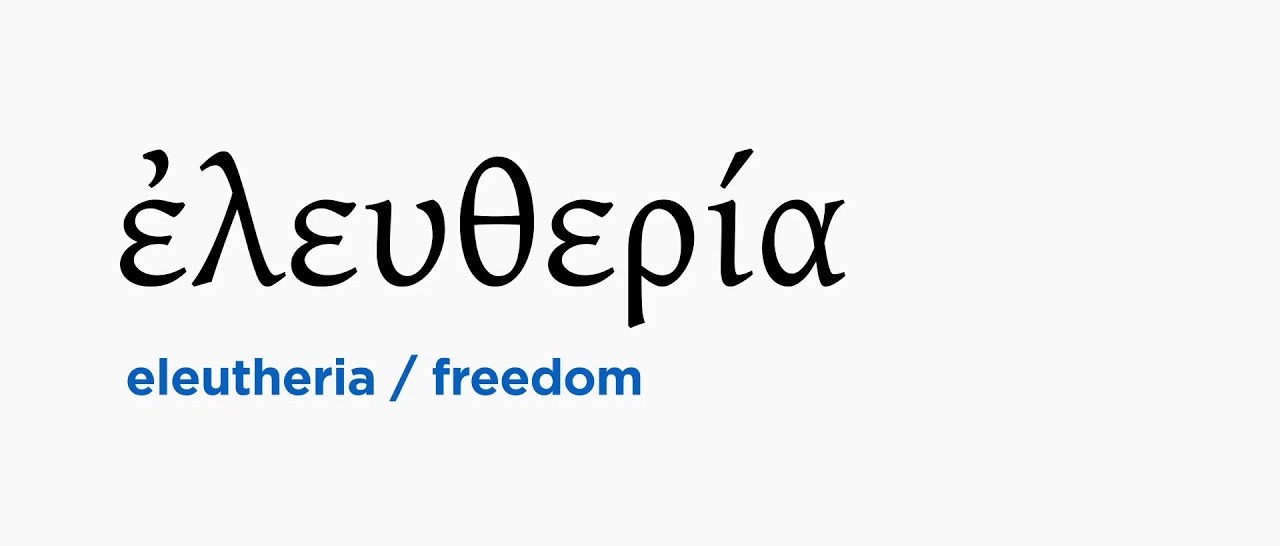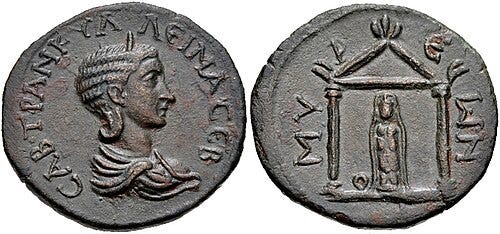Aristotle and Liberty
How eudaimonia requires eleutheria, and eleutheria requires negative liberty
Introduction
In this article, I will argue that a coherent Aristotle, when coupled with a modern conception of what a fully-rational animal is—so excluding his view of natural slaves, women, etc. (most of humanity, really)—is entirely compatible with classical liberalism.
I will not argue that Aristotle was a classical liberal; he was no such thing (lacked universalism). Nonetheless, he was instrumental in the political philosophy’s development—influencing many classical liberals and proto-liberals—and his communitarian political principles are either overstated (ex. the polis doesn’t have to be a monopoly on force) or contradictory to other parts of his framework.
First, I’ll give a brief overview of what Aristotle meant by freedom (eleutheria), why negative liberty is necessary for it to be meaningful, and why it has to be meaningful to achieve eudaimonia (self-fulfillment or well-being), humanity’s telos or highest end for Aristotle. Then, I’ll tie this conception of liberty with the Greek philosopher’s justification for private property rights. Finally, I’ll argue that Aristotle’s eudaimonia also necessitates reasoned cooperation, which also rests on eleutheria.
1. Negative liberty & eleutheria
Moira Walsh, in Aristotle’s Conception of Freedom, defines eleutheria as follows:
Eieutheria [eleutheria], usually translated as 'liberty' or 'freedom', is conceived by Aristotle […] as the capacity to direct oneself to those ends which one's reason rightly* recognizes as choiceworthy. This concept of freedom as rational self-direction can be found underlying Aristotle's discussions of natural slavery and democracy.
But…
→ Roderick T. Long notes in his own Aristotle’s Conception of Freedom (yes, Long’s work is called the same as Walsh’s) that—as a precondition for “one’s reason to rightly recognize something as choiceworthy” to be meaningful/virtuous (Aristotle believes fully-rational animals need to lead virtuous lives to achieve eudaimonia)—one’s reason also needs the possibility to wrongly recognize something as choiceworthy, or act in counter-eudaimonic ways:
[…] the existence of at least some rights to do wrong is implicit in Aristotle's defense of private property rights as a precondition of the virtue of generosity. The difference between generous giving and just giving is that generous giving involves giving what one has a right to withhold (for example, one's property), while just giving involves giving what one does not have a right to withhold (for example, the property of another, when surrendered to that other). Aristotle's point is that without private property rights, no act of giving could count as generous; generosity would simply collapse into justice. Thus, in Aristotle's eyes, generosity presupposes the right to act ungenerously.
So…
→ For Aristotle, one needs to protect “the capacity to direct oneself to those ends which one's reason wrongly recognizes as choiceworthy” (so the absence of coercion, or negative liberty) in order for “the capacity to direct oneself to those ends which one's reason rightly recognizes as choiceworthy” (eleutheria) to be rendered meaningful, as it allows truly virtuous activity (essential to achieve eudaimonia).
2. Property rights & eleutheria
In Nicomachean Ethics, Aristotle says:
[…] existence is choiceworthy and lovable for all, and we exist in virtue of activity (for we exist in virtue of living and acting), and the work is, in a way, the producer in activity. […] And this is natural, since what he is potentially, the work manifests in activity.
So…
→ For Aristotle, property (“the work”) is the material expression of the producer’s rational activity. In other words, it’s how we (fully-rational animals) translate “our capacity to direct oneself” to “those ends which one's reason rightly recognizes as choiceworthy” in the material sphere. In this realm, Aristotle echoes the Lockean view of property as a natural extension of the self.
So…
→ Property rights are an essential means of exercising eleutheria.
3. Reasoned cooperation & eleutheria
→ For Aristotle, humanity’s telos (highest end) is eudaimonia. To achieve eudaimonia, one must act in accordance with virtue (which, as we saw earlier, necessitates free choice). One also needs to be a “political animal,” but Aristotle’s view of the polis—so, of political matters—can’t be directly translated into our modern vocabulary (again, the polis doesn’t have to be a monopoly on force).
As Roderick T. Long says:
To be a political animal is not simply to be an animal that lives in groups or sets up governments (after all, sheep do the former, and barbarians do both; but neither, in Aristotle's view, are political-or at least not in the fullest and highest sense); rather, it is to cooperate with others on the basis of discourse about shared ends.
But…
Again, in Long’s words:
A person who is being dragged kicking and screaming toward the good life by a benevolent government is decidedly not interacting with others on the basis of reasoned cooperation; to that extent, such a person is living a less than fully human life, and ipso facto is not achieving full eudaimonia.
So…
→ Eleutheria “may not be sufficient for attaining the highest good [eudaimonia], but it is necessary: necessary not only instrumentally, but constitutively.” (Long)
Conclusion
Negative liberty is essential for eleutheria to be meaningful, for one to act in accordance with virtue.
Private property rights are essential to the exercise of eleutheria.
Paternalism is a negation of reasoned cooperation, the latter necessitates eleutheria.
Both acting in accordance with virtue and reasoned cooperation are constitutive of eudaimonia (humanity’s telos).
So…
→ All fully-rational animals should be granted negative liberty for eleutheria to be meaningful—including the means to exercise eleutheria in the material sphere (property rights)—as it allows them to achieve eudaimonia (humanity’s telos).
The described framework is entirely compatible with classical liberalism, even if Aristotle’s idea of what a fully-rational animal is was far too exclusive. It was the Stoic cosmopolis, much more than Aristotle’s polis, which laid the groundwork for classical liberalism’s universalism.







